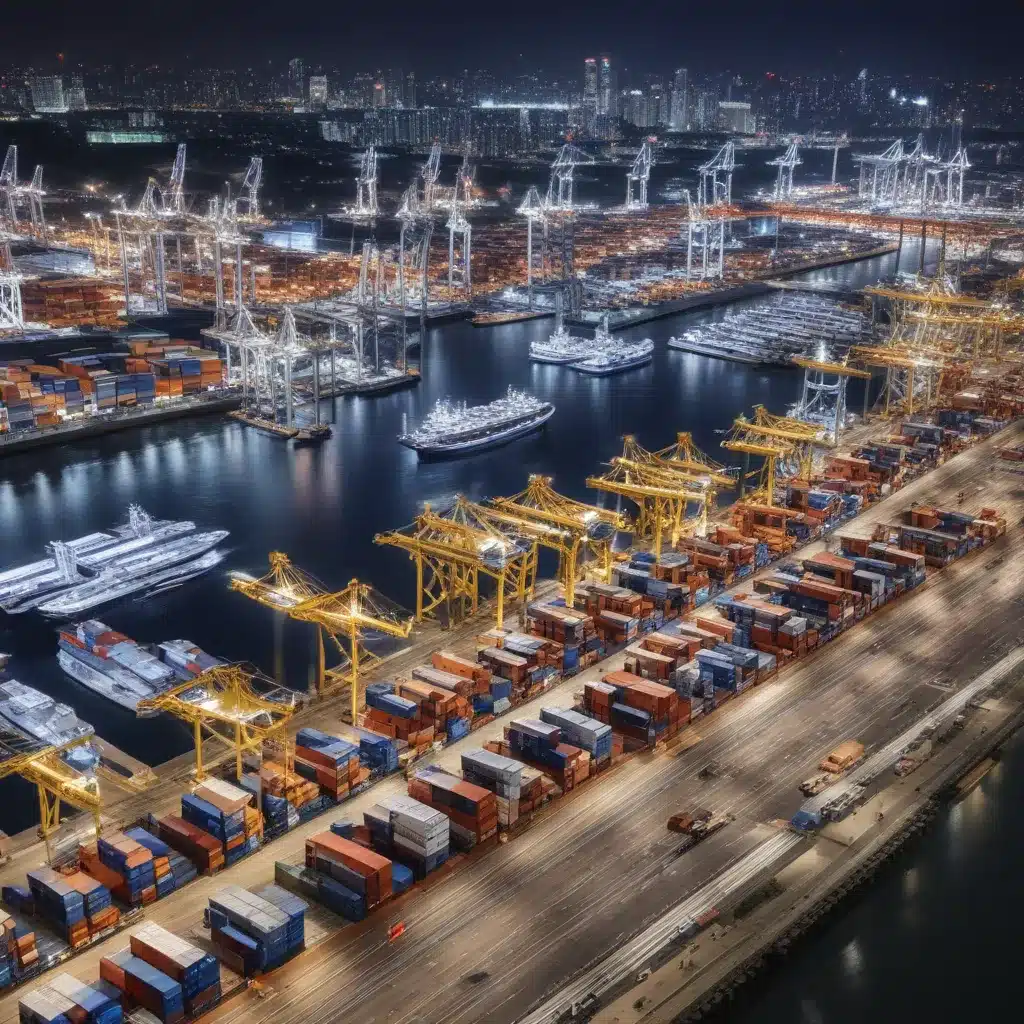
Navigating the Complexities of Global Trade in an Era of Environmental Challenges
The interconnected nature of our world has led to the rapid growth of global supply chains, enabling the efficient movement of goods across borders. However, this intricate web of production and distribution has also brought about significant environmental challenges that demand urgent attention. The inaugural United Nations Global Supply Chain Forum, hosted by UNCTAD (United Nations Conference on Trade and Development) and the Government of Barbados, has emerged as a critical platform to address these pressing issues and redefine the future of global trade.
Addressing the Compounded Impacts of Climate Change, Geopolitics, and Pandemics
The global trade landscape has faced unprecedented disruptions in recent years, with the compounded effects of climate change, geopolitical tensions, and the COVID-19 pandemic posing significant challenges to supply chain resilience. UN Trade and Development Secretary-General Rebeca Grynspan emphasized the urgent need to make global production and distribution networks more inclusive, sustainable, and resilient.
The forum brought together a diverse array of stakeholders, including government officials, representatives from UN agencies, development banks, port authorities, and industry leaders. Their collective efforts aimed to identify innovative solutions and chart a path forward that aligns with the global sustainability agenda.
Ports: Hubs of Transformation and Resilience
Ports play a crucial role in maintaining global value chains, and the forum highlighted their potential to lead the charge towards a greener, more efficient, and resilient trade ecosystem. Visiting the Port of Bridgetown in Barbados, Secretary-General Grynspan showcased the island nation as an example for other Small Island Developing States (SIDS) in implementing sustainable port practices.
The forum emphasized the complexities and opportunities in decarbonizing global shipping, with a focus on developing countries rich in renewable energy resources. Ports were recognized as central facilitators in this transformation, serving as connectors for various stakeholders and driving the adoption of low- or zero-carbon fuels, establishing safety frameworks, and developing port readiness assessment tools.
Manifesto for a Sustainable Future
One of the forum’s key outcomes was the launch of the “Manifesto for Intermodal, Low-Carbon, Efficient and Resilient Freight Transport and Logistics.” This manifesto underscores the urgent need to transform the freight transport sector in order to meet global climate targets and enhance socio-economic resilience.
The manifesto’s key focus areas include:
– Transitioning to zero-emission fuels
– Optimizing logistics systems
– Creating sustainable value chains
By aligning these priorities with the goal of keeping global warming below 1.5°C, the manifesto sets a clear roadmap for the international community to work towards a greener, more efficient, and resilient global trade ecosystem.
Empowering Small Island Developing States
SIDS, such as those represented at the forum, face heightened risks from climate change impacts on their transport infrastructure. This places the transport and logistics sector at the forefront of their development priorities. These countries must improve connectivity within and between their nations, as well as to regional and global markets, through strategic investments in maritime and air transport infrastructure, efficient multimodal transport networks, and streamlined customs and administrative procedures.
In a joint statement, the participating ministers from SIDS called for international financial institutions, development banks, and donor countries to prioritize funding and investment in their transport and logistics sector, focusing on projects that promote resilience, sustainability, and inclusivity.
Harnessing the Power of Digital Technologies
Digital technologies were identified as indispensable tools for strengthening global supply chain resilience. Innovations like blockchain-enabled traceability mechanisms and advanced customs automation systems were showcased as key enablers for optimizing trade facilitation processes, enhancing transparency, and mitigating operational risks.
The forum also saw the launch of the UN Trade and Development Trade-and-Transport Dataset, a groundbreaking repository of global data developed in collaboration with the World Bank. This comprehensive dataset covers all countries and trading partners, with data on over 100 commodities and various transport modes, offering a holistic view of trade flows and associated costs. Accessible for free, this dataset is expected to significantly contribute to better understanding and optimizing global trade, as well as improving evidence-based policymaking.
Fostering Innovation and Collaboration
In the run-up to the forum, UN Trade and Development held its first Supply Chain Innovation Challenge, aiming to inspire innovative solutions for making global supply chains greener, more efficient, and resilient. The winning proposals were presented at the forum, showcasing the potential for collaboration and cross-pollination of ideas.
The forum also saw the signing of a Memorandum of Understanding between UN Trade and Development and the China Council for the Promotion of International Trade (CCPIT) to expand their existing collaboration. This includes joint activities in trade and investment promotion, trade facilitation cooperation, supply chain-themed exhibitions, public-private dialogues, business matchmaking events, and facilitating exchanges between economic and trade experts, scholars, and think tanks.
A Call to Action for a Sustainable Future
As the world grapples with the complex challenges facing global supply chains, the inaugural UN Global Supply Chain Forum has emerged as a pivotal event, setting the stage for a new era of collaborative action. The outcomes of this forum are expected to strengthen global supply chains and the resilience of SIDS, with the Kingdom of Saudi Arabia set to host the second forum in 2026.
The power to change the future lies in the hands of those who are willing to take action, as emphasized by Secretary-General Rebeca Grynspan in her address to students at the University of the West Indies in Barbados. By harnessing the collective efforts of governments, international organizations, industry leaders, and civil society, the global community can chart a sustainable path forward that balances economic prosperity with environmental stewardship and social equity.
The Joint Action for Water community stands ready to contribute its expertise and resources towards this crucial endeavor, as we work together to redefine the future of global trade and supply chains.

